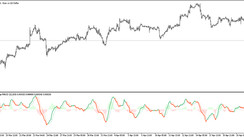Quantitative Easing (QE) and more recently Quantitative Tightening (QT) have become terms highly associated with central banks after the 2007-2008 financial crisis.
At first look, it may appear that financial analysts throw these terms around depending on the day. The reason for it is that Quantitative Easing (QE) and Quantitative Tightening (QT) are antipodes – what one does the other cancels out.
This article will focus on the effects of QT, but, in a nutshell, QE sets to encourage higher economy output by having interest rates close to zero while injecting money into the economy by purchasing different financial instruments. QT, by definition, is the opposite of that – removing money from the economy through similar measures.
The tightening
It does not take a degree in finance or economics to see the problems of having low interest rates and plenty of cash circulating the economy once the market rebounds from its bearish state. Presidents, Chairmans, and Governors from all the major central banks in the world are also aware of the potential damage the global economy can suffer in the long-run.
Therefore, they have suggested implementing the so-called Quantitative Tightening to reverse any possible adverse effects from their policies.
Now, it is also essential to say that the repercussions of a prolonged QT are as unknown as the impact of QE was when major central banks initially implemented it over a decade ago. So while the short-term effect can be measured, it is less clear how much of a good idea it is for the long-run.
Assets, assets, assets
Realtors repeat that the value of property relies on location. When it comes to QT and its impact on forex, it is all about assets. For QT to be implemented, central banks would have to either sell their assets or let them mature without reinvesting. With all things equal, this action will drive down bond prices. That, in turn, will increase interest rates, and an increase in interest rates will cause their currency to strengthen.
For example, speaking to Fox News Sunday on February 2018, Mick Mulvaney explained that the US is the largest holder of US debt. Therefore, if QT were to happen, the FOMC would have to let its bonds mature while no longer purchasing new debt. That would cause bond prices to drop and yields to increase in order to incite new buyers. In theory, all of this should positively affect the US Dollar (bullish USD) in the Forex market, just as QE weakened currencies.
Short selling? Not so fast
The first intuition regarding stocks and risky assets people may have is to press the red button and switch from a long position to a short one. However, there is no need to panic.
As of the writing of this article, the US Federal Reserve is the only major central bank that has instituted any form on Quantitative Tightening. Moreover, any decisions made regarding implementing QT are heavily weighted against the risk of sinking the economy into another prolonged recession. In early 2019, the Fed was quick to reverse on its plans to continue QT on autopilot after financial markets sank at the turn of the year.
In conclusion, QT is a monetary policy that decreases the money supply in an economy and therefore is bullish for the value of a currency. But, central banks are reluctant to begin and implement this policy due to fears of how it will affect the overall economy.





